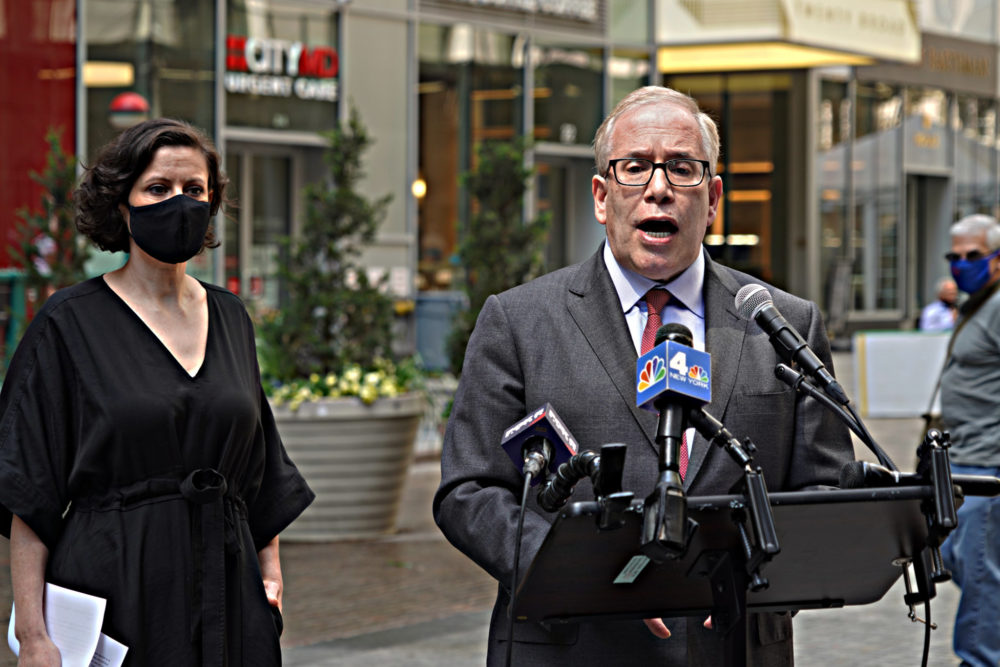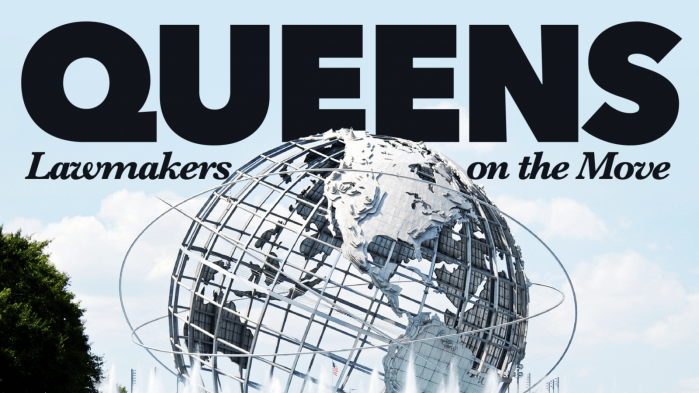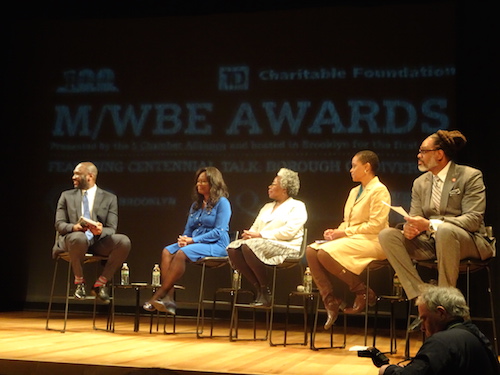Comptroller Scott Stringer is recommending that the next comptroller, who will be elected soon, should do a “racial audit” of city agencies after finding that the city fails to do business with most minority businesses.
Announced Monday, the comptroller’s annual report reveals that the city is doing a worse job than the last two years at including a diverse set of businesses in their contracts.
“As this administration prepares to leave office, it is clear that the City, from the next Mayor and Comptroller to the next City Council, have abundant opportunities to address the systemic inequities experienced by communities of color especially as we continue to rebuild our economy amid the COVID-19 pandemic,” Stringer said in a statement.
The city’s potential next mayor, Brooklyn Borough President Eric Adams, commented on the report earlier at a press event, saying “If we would have identified in real time that the agency is not trending in the right direction, we can take corrective action immediately.”
Adams added that it was time to stop looking at the city through a “rearview mirror” and start monitoring what direction the agencies are trending. It’s possible that a racial audit to see how city agencies fair when it comes to diversity could actively monitor trends.
“That should [have] never happened and it won’t happen if we put in place the right monitoring systems,” Adams said.
Stringer’s report covers fiscal year 2021, which doesn’t directly reflect what may be happening now, but the trend of his grades is negative. In 2019 and 2020, he gave the city a “C”, and this year, it’s a “C-.”
One of the agencies that performed the lowest in his report was the Department of Transportation, which received an “F.” According to his release, DOT spends less than 5% of its city dollars with minority and women owned businesses. The M/WBE program is instated by Local Law 1, which sets participation goals and the amount of dollars an agency should dedicate to a M/WBE per project. That business has to be certified by the city as M/WBE.
Stringer’s report shows that among the dollars that each city agency had that were Local-Law-1 eligible, very few of them were actually used for M/WBE participation. Meanwhile, Stringer’s own office received an “A” for increasing its M/WBE spending to 53% this year.
What is the comptroller’s office doing that the other agencies aren’t? As of this year, there are more than 10,000 city-certified M/WBEs, and the city is working to establish chief diversity officers at all city agencies. Some agencies, including the Department of Parks and Recreation, have taken advantage of these movements and even dedicated all of their contracts during the COVID-19 pandemic to M/WBEs. They’ve also used what Stringer calls the Small Purchase Method, where agencies like the Comptroller’s office found areas in discretionary funding to dedicate specifically to M/WBEs. This created $500,000 worth of opportunities for women and people of color in 2020 alone.








